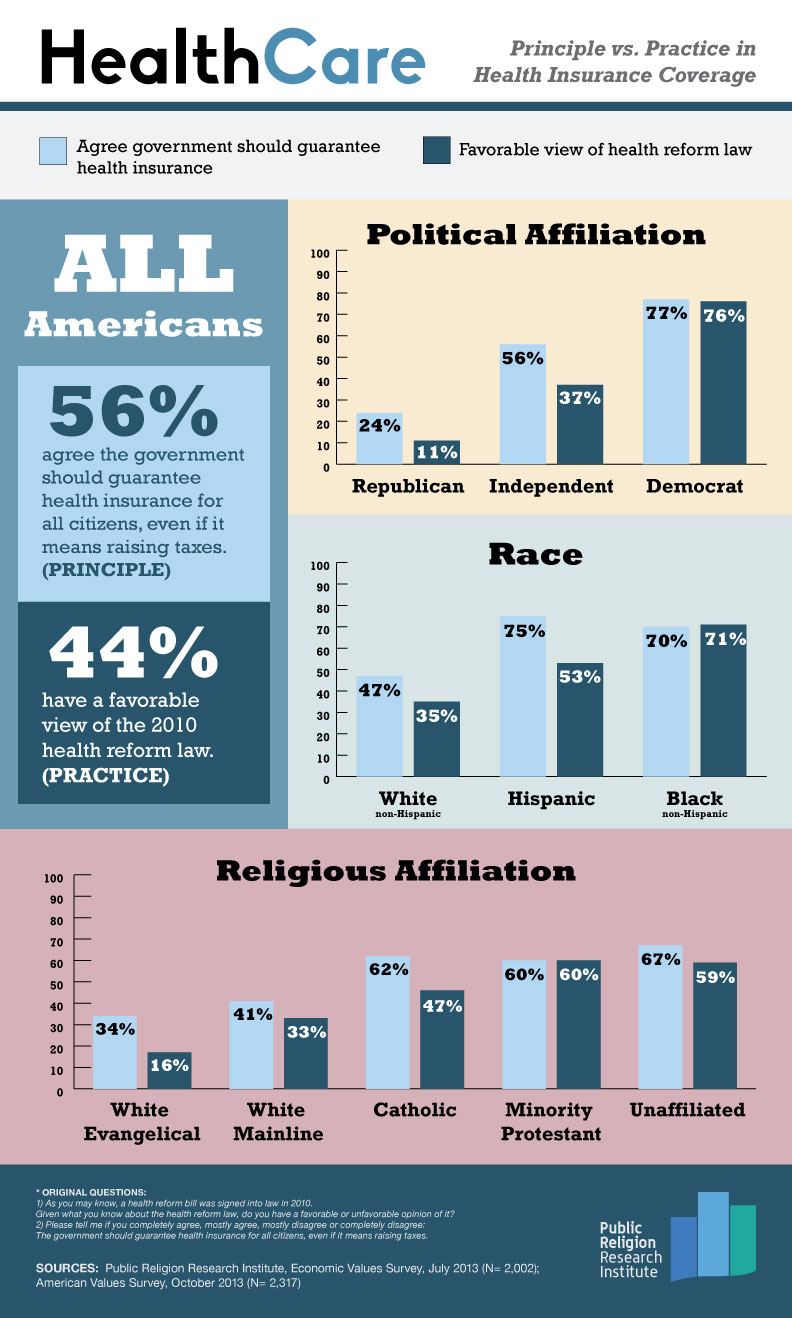Americans have complicated feelings about the proper provision of health care in the country today. While Americans generally support in principle that the government should provide health insurance for its citizens, they’re less enthusiastic about the current government-initiated health care program, also known as Obamacare. A majority (56 percent) of Americans say the government should guarantee health insurance for all citizens, even if it means raising taxes, while 44 percent are opposed. However, in practice, fewer (44 percent) Americans say they have a favorable view of the 2010 health care law known as Obamacare, while a majority (54 percent) have an unfavorable view. However, the gaps between the support for the principle and the current health care policy vary significantly by political affiliation.
Democrats demonstrate the greatest agreement with the principle of government-provided health care (77 percent), and are nearly equally likely to hold favorable views of Obamacare (76 percent). Among independents the principle and practice gap is considerable. While a majority (56 percent) of independents support government-provided health care, just more than one-third (37 percent) hold favorable views of the 2010 health care law. Republicans are much more consistent in their approach to both principle and practice. Only about one-quarter (24 percent) of Republicans agree that government should provide all citizens with health insurance, while roughly 1-in-10 (11 percent) have a favorable views of Obamacare.
There are also distinct variations in how different racial and ethnic groups view the principle of government-provided health care and the 2010 health care law. Three-quarters (75 percent) of Hispanic Americans agree that government should provide health insurance to all citizens, while many fewer—though still a majority—view the 2010 health care law favorably (53 percent). White Americans are roughly divided on government’s role in providing health care coverage for citizens, but only about one-third (35 percent) report a favorable impression of the 2010 health care law. Black Americans report similarly strong support for both the principle of government-provided health care (70 percent) and the 2010 health care law (71 percent).
Religious differences are also stark. Among both unaffiliated Americans and minority Christians, there is support for both the principle of government-provided health care and the 2010 health care law. Equal numbers of minority Protestants report that they support government-provided health care (60 percent) and have a favorable view of the 2010 health care law (60 percent). Religiously unaffiliated Americans report modestly greater support for the principle of government-provided health care (67 percent) than for Obamacare (59 percent). While more than 6-in-10 (62 percent) Catholics are supportive of government providing health insurance to all citizens, they are divided in their views on the 2010 health care law. Comparatively few (41 percent) white mainline Protestants agree with the principle of government-provided health insurance while even fewer (33 percent) have a favorable view of the health care law. Even fewer white evangelical Protestants agree that government should provide health insurance to citizens (34 percent), but support for the principle far surpasses favorable views of Obamacare, which languish at 16 percent.





